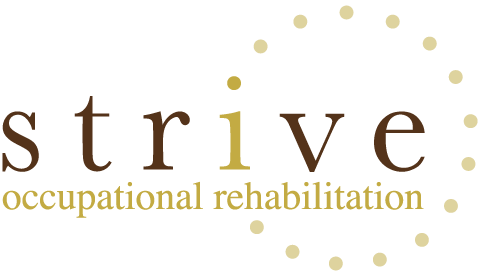By Elle Balchin, Rehabilitation Consultant – OT
Consider the way you think about your perceived failures or inadequacies – what do you tell yourself? I failed, I’m not good at this, I’m not as good as so-and-so, they shouldn’t rely on me for this, I can’t do this, why am I so __. Why can’t I be more __. Now think of your best friend standing in front of you, and imagine yourself speaking about them in this way.
I’d be willing to wager you immediately think to yourself “no, I would never speak to them like that”. Because when you see your friend hurting or feeling down, most people’s instinctual reaction is to want to ease that pain by extending a hand of encouragement or kindness.
This psychological phenomenon is called compassion – compassion is the desire to alleviate suffering. When we feel compassion for others, we feel a need to heal them, or relieve the burden they are experiencing.
But how often do you extend this same compassion to yourself?
The idea of self-compassion is three pronged – extending kindness to oneself, remembering our common humanity, and practicing mindfulness.
Self-kindness – being caring and understanding with oneself rather than judgemental and critical. Think of speaking to yourself the way you would to a close friend or a young child – with kindness, encouragement, and patience.
Shared humanity – recognising that no-one is perfect, that everyone makes mistakes, we all have flaws, and that this is not only okay but a normal part of the human condition. This recognition helps us connect to other people through our shared flaws, and gives us better perspective to be more tolerant with our own.
Mindfulness – being aware of our own feelings in a balanced way. This is the practice of noticing our feelings and thoughts and accepting them, but not obsessing over or ignoring them. Read more about practicing mindfulness.
Too often the way we speak to ourselves is harsh, negative and self-critical. We continually remind ourselves of our insecurities and shortcomings, rather than our triumphs. We fixate on what we lack, instead of what we have to offer. This, in turn, leads to increased anxiety and negative emotions, decreased feelings of self-worth and lower motivation. However, being self-compassionate can help reverse each of these.
There is growing research that suggests that self-compassionate people are better able to set goals and work towards achieving them, and have better resilience when they experience setbacks. Self-compassionate people are also better able to regular their emotions, get less bogged down with insecurities, and better able to look after themselves health wise.
So why not try it? Next time you notice yourself feeling tense, being negative or self-critical, try embracing yourself with kindness, as you would a friend. Notice how you’re feeling, offer yourself some words of comfort or encouragement and gently remind yourself of how the way you’re feeling connects you with others.
Remember, mindfulness is a skill, as is self-compassion. The more you practice, the easier and more automatic it will become. Start today.
#StriveToBeMindful

 The War on Digital Fatigue
The War on Digital Fatigue